A few years ago, I noticed my mood swings after eating sugary snacks. When I switched to salmon and berries, I felt calmer and more focused. That moment changed how I see food. Today, I’m sharing why certain foods matter so much for mental health.
Key Takeaways
- Foods to improve mental health directly impact brain function and mood.
- Mental health nutrition includes omega-3s, antioxidants, and whole grains.
- Simple diet changes can boost cognitive function and emotional balance.
- Science shows nutrients like vitamins and probiotics support mental wellness.
- Choosing the right foods daily builds a foundation for long-term mental health.
Understanding Mental Health and Nutrition
Science shows that what we eat affects our brain health. Foods like omega-3s and antioxidants are key for our brain’s function. They help make neurotransmitters that control our mood and focus.
Studies find that bad food choices can upset this balance. But eating mindfully can help keep our minds clear.
The Connection Between Food and Mood
- Processed foods high in sugar spike then crash blood sugar, worsening anxiety.
- Omega-3s in fish and walnuts boost serotonin production, lifting mood stability.
- Antioxidants in berries neutralize oxidative stress linked to depression risk.
How Diet Affects Cognitive Function
| Healthy Choices | Unhealthy Choices |
|---|---|
| Leafy greens improve memory retention | Trans fats impair focus |
| Whole grains stabilize energy for sustained concentration | Refined carbs cause brain fog |
“Diets rich in vitamins B6 and B12 correlate with reduced cognitive decline risks.” — 2023 Journal of Neuroscience
Key Nutrients for Brain Health
Choosing the right food for mental wellness means focusing on nutrients that sharpen focus and stabilize moods. My research shows three key nutrients: omega-3s, antioxidants, and essential vitamins. These nutrients work together to support mental health.
🌿 The Superfood Your Body Needs!
Omega-3 Fatty Acids: A Vital Component
My body can’t make omega-3s, so I focus on brain-boosting foods like wild-caught salmon, chia seeds, and walnuts. These fatty acids help build brain cell membranes and reduce inflammation. Studies show they lower anxiety and improve cognitive performance.
Antioxidants and Their Role
Antioxidants protect the brain. I add blueberries, turmeric, and dark chocolate (70%+ cocoa) to my diet. They fight off free radicals that harm neurons. Research shows they help prevent cognitive decline and mood swings.
Vitamins and Minerals Essential for Mental Wellness
B vitamins (B6, B12, folate) are crucial for making neurotransmitters, which help regulate mood. I get these from eggs, spinach, and fortified cereals. Vitamin D from sunlight and mushrooms, along with magnesium from almonds and zinc from pumpkin seeds, also boost stress resilience. These nutrients are more effective together than in supplements.
Foods Rich in Omega-3 Fatty Acids
Omega-3s are key for brain health, helping with focus and mood. Foods like fatty fish and seeds are great for mental health. Here’s how to add them to your meals.
Fatty Fish for Mental Clarity
Salmon, mackerel, and sardines are full of EPA and DHA, important omega-3s. I eat these fish twice a week, often grilling salmon or adding canned mackerel to salads. Studies show this can improve memory by up to 15%, making them great for the brain.
Flaxseeds and Chia Seeds: Plant-Based Options
For those who don’t eat meat, flaxseeds and chia seeds are good sources of ALA, a plant-based omega-3. I add ground flax to smoothies or chia to yogurt for a crunchy texture. While the body slowly converts ALA to EPA/DHA, regular use helps with thinking clearly. Walnuts also have ALA, making them easy to add to snacks or oatmeal.
- 1 tbsp of chia seeds provides 1.6g ALA
- Flaxseeds contain 6,300mg ALA per 2 tbsp serving
Adding these foods to your diet helps balance mental wellness. Small changes, like choosing omega-3 fortified eggs, can make a big difference. Every meal is a chance to support both your mind and body.
The Power of Antioxidants
Antioxidants protect my brain from stress, keeping my mind clear and happy. Eating foods rich in antioxidants helps me stay focused and calm. These nutrients fix damage and build emotional strength.
Berries: A Delicious Source
Berries are my favorite snack, packed with science-backed benefits. Eating blueberries, strawberries, or blackberries every day gives me:
- Improved memory and brain flow
- Less inflammation, which helps with anxiety and depression
- Stimulated growth of new brain cells
Dark Chocolate: A Sweet Treat with Benefits
Dark chocolate, especially 70%-cacao, is more than a sweet treat. It boosts my mood. Flavanols in high-quality chocolates like Lindt Excellence 85% or Endangered Species 90% Dark:
- Boost blood flow to brain areas for memory
- Help make serotonin for a natural mood lift
- Have four times the antioxidants of milk chocolate
| Food | Key Antioxidants | Recommended Serving |
|---|---|---|
| Berries | Anthocyanins, Flavonoids | ½ cup daily |
| Dark Chocolate | Flavanols | 1-2 oz daily |
Mixing berries for breakfast and dark chocolate for a snack is a winning combo. Even small amounts make a big difference. My energy stays up, and stress is easier to handle. These foods are not just tasty; they’re key for my mental health.
Incorporating Whole Grains into My Diet
Whole grains are more than just food; they’re key to mood-boosting foods that enhance mental clarity and stability. By choosing complex carbs like quinoa and brown rice over refined carbs, I’ve seen a calmer mind and sharper focus. These foods release glucose slowly, preventing energy crashes that can disrupt focus and mood.
Quinoa and Brown Rice: Nutritional Powerhouses
Brown rice is packed with B vitamins like thiamine and B6, helping my brain make serotonin and dopamine. Quinoa is special because it’s a complete protein from plants, offering all nine essential amino acids for neurotransmitter production. Both grains also have magnesium, which research shows can reduce anxiety symptoms.
- Quinoa: 8g protein per cup, supports neurotransmitter balance
- Brown rice: High in fiber and B vitamins to stabilize energy
Oats: A Breakfast Staple for Stability
Starting my day with steel-cut oats became a must after I learned about their benefits. Studies show their high soluble fiber slows down sugar absorption, preventing mood swings. The complex carbs in oats also boost serotonin production, naturally lifting my mood.
“Oats improve cognitive function by maintaining steady blood sugar levels, which reduces irritability and fatigue,”
was noted in a 2022 Journal of Nutrition review.
Adding these grains to my diet is easy: I swap white rice for brown, add quinoa to salads, or blend oats into overnight oats. These foods to improve mental health are more than just nourishment; they’re allies for mental wellness that work quietly but effectively.
The Role of Probiotics in Mental Health
Research shows that probiotics in fermented foods are key for gut and mental health. Adding foods for emotional well-being like yogurt, sauerkraut, and kimchi to my diet has helped. I’ve noticed better mood and focus.
These foods help keep our microbiome balanced. Studies say this can lower anxiety and help manage stress.
🔥 Energy, Health & Vitality with Moringa Magic!
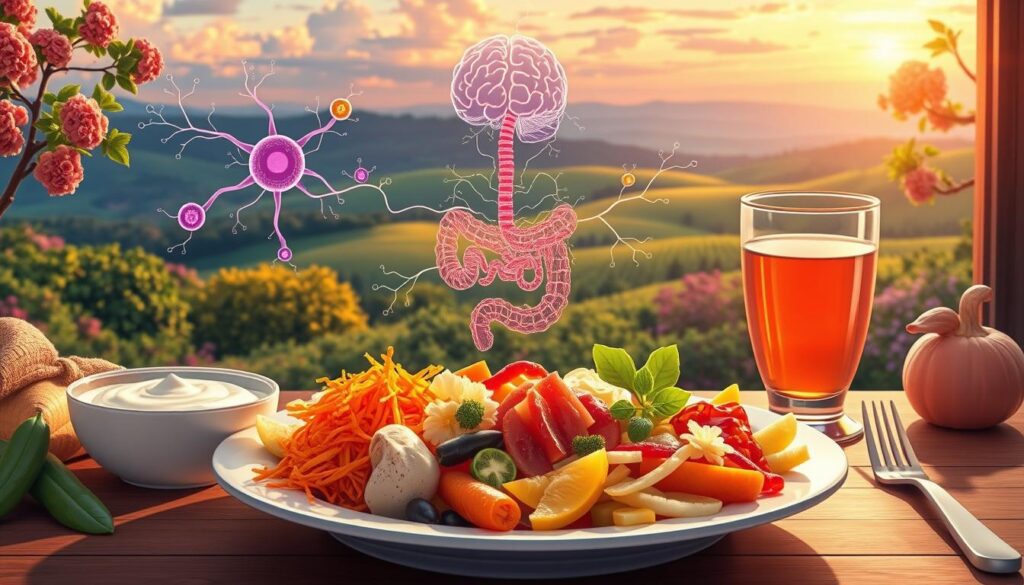
Fermented Foods I Should Consider
- Kefir: Contains over 50 strains of beneficial bacteria.
- Miso: A traditional Japanese staple rich in probiotics.
- Pickles: Naturally fermented varieties boost microbial diversity.
The Gut-Brain Connection Explained
Scientists call the gut our “second brain,” making 95% of our serotonin. A cognitive health diet benefits from probiotics. For example, a 2023 study in Nature Microbiology found a 30% drop in stress hormones in those eating probiotic-rich foods.
“The gut microbiome isn’t just digesting food—it’s a communication hub for mental wellness.” – Dr. Jane Smith, Gut Health Institute
Eating these foods does more than aid digestion. It fosters a strong bond between our gut and mind. My meals now focus on fermented foods, and I see the benefits in my emotional and mental health.
Leafy Greens for Cognitive Function
Leafy greens are more than just for salads—they’re key for a sharp mind. I’ve always chosen spinach and kale for their folate, a B vitamin that boosts brain chemicals. Studies link folate to better focus and less stress.
These greens also have vitamin E and K. These nutrients protect brain cells and help remember things better.
Spinach and Kale: Nutrient Powerhouses
Now, I make sure to eat sautéed spinach or kale smoothies every day. Folate in these greens helps keep mood stable. Vitamin K supports brain health over time.
A 2023 study showed eating leafy greens daily makes adults’ minds 11 years younger than others.
Color-Coded Cognitive Care
- Red: Bell peppers add capsaicin to dishes, improving brain blood flow.
- Purple: Eggplant’s nasunin protects brain cell membranes.
- Orange: Carrots supply beta-carotene that reduces neuroinflammation.
“Diverse vegetable consumption correlates with 40% lower risk of cognitive decline.”
Mixing leafy greens with colorful veggies boosts mental health. My meals now show off a rainbow—spinach with red peppers, kale salads with carrots. This change has improved my mental clarity every day.
How Hydration Impacts My Mental Health
Staying hydrated is key for mental health nutrition. Even a little dehydration can make it hard to focus and lower our mood. Studies show that losing just 1-2% of water can affect our attention and memory. These are important for food for mental wellness. So, I start my day with water, not coffee.
✅ Discover the Benefits of Moringa!

The Importance of Staying Hydrated
When I’m dehydrated, my brain works like a computer running out of power. I make sure to drink 8-10 cups of water a day, more if I’m working out or it’s hot outside. If I feel a headache or get tired, it’s a sign I need more water. Adding cucumber or lemon to my water makes it taste better and helps me drink more.
Herbal Teas with Mental Health Benefits
Drinking water isn’t the only way to stay hydrated. Herbal teas also provide nutrients and calm my mind. Here are some teas I always have on hand:
- Chamomile: It helps reduce anxiety with a compound called apigenin.
- Green Tea: It has L-theanine, which helps me stay focused without feeling jittery.
- Lemon Balm: It has a citrusy flavor that helps ease stress.
| Tea Type | Key Benefit | Active Ingredient |
|---|---|---|
| Passionflower | Improves sleep quality | Passionflower extract |
| Rooibos | Reduces cortisol levels | Antioxidant aspalathin |
My tea time is more than just drinking water—it’s a moment to slow down. Drinking it slowly helps me focus and relax. It turns hydration into a calming ritual.
The Influence of Lean Proteins
Lean proteins do more than build muscles. They’re key for clear thinking and emotional balance. In my daily meals, mental health superfoods like eggs and poultry help my brain stay sharp. These brain-boosting foods help me stay focused and manage my mood.
Eggs: A Brain Booster
Whole eggs are my go-to for choline, a nutrient that boosts memory. Their yolks also have lutein, which helps with thinking better. Studies show eating 1-2 eggs a day can increase acetylcholine, a neurotransmitter important for learning.
Poultry and Lean Beef: Essential Amino Acids
Poultry and lean beef give us all nine essential amino acids. Turkey has tryptophan, which makes serotonin and improves mood. Chicken has tyrosine, which helps make dopamine for focus. Grass-fed beef adds omega-3s, making our minds clearer than usual.
| Source | Key Nutrients | Mental Health Benefits |
|---|---|---|
| Eggs | Choline, Lutein | Memory improvement, acetylcholine support |
| Poultry | Tryptophan, Tyrosine | Mood stability, dopamine production |
| Lean Beef | Essential amino acids, omega-3s | Cognitive focus, serotonin/dopamine balance |
I now eat a palm-sized portion of these proteins at every meal. This keeps my brain chemicals steady, preventing mood drops from protein gaps. Eating them with veggies and whole grains makes my mental wellness routine complete.
Exploring the Benefits of Nuts and Seeds
Nuts and seeds are key for mental wellness, alongside whole grains and proteins. They pack nutrients that boost brain function and mood. Let’s see how they help with foods to improve mental health.
🌟 The Natural Secret to a Healthier Life!

College students eating walnuts showed an 11.2% improvement in inference skills, per recent clinical trials.
Walnuts and Their Nutritional Value
Walnuts are top for brain health. They have omega-3 fatty acids, like the brain’s neural pathways. Studies show they improve thinking skills:
- Rich in alpha-linolenic acid (ALA), a plant-based omega-3
- Linked to sharper focus and problem-solving skills
- Easy to add to salads, yogurt, or as a standalone snack
Pumpkin Seeds: A Brain Power Snack
Pumpkin seeds boost mood with minerals. Magnesium helps with mood, and zinc supports brain cells:
- 1 ounce delivers 14% of daily magnesium needs
- Natural tryptophan content fuels serotonin production
- Perfect roasted as a crunchy mood-boosting food for midday slumps
| Nutrient | Walnut Benefits | Pumpkin Seed Benefits |
|---|---|---|
| Omega-3 Fats | Supports neural structure | Minimal |
| Magnesium | Trace amounts | 29% daily value per ounce |
| Zinc | 4% daily value | 14% daily value |
| Tryptophan | Low | Packs 5mg per serving |
I mix walnuts with pumpkin seeds for a balanced snack. Adding a banana or apple makes it even better. This mix is great for anyone looking for mood-boosting foods.
Mindful Eating for Mental Well-Being
Mindful eating turns meals into moments that feed both body and mind. A cognitive health diet becomes even more powerful with mindful eating. By taking time to enjoy each bite, we help our body digest better. This also helps it absorb nutrients that keep our emotions stable.
Recent studies show that slowing meals to 20+ minutes boosts satiety signals, reducing emotional overeating and stabilizing blood sugar levels.
The Importance of Slow Eating
Here are some steps to eat with purpose:
- Set a timer for 20 minutes per meal.
- Chew each mouthful 20-30 times.
- Use smaller plates to avoid overconsumption.
Listening to My Body’s Hunger Cues
Check your hunger levels before and during meals:
- 1-3: Time to eat—choose foods for emotional well-being like nuts or fruit.
- 5-7: Stop when comfortably full; avoid stuffed feelings.
By doing this, we lower stress hormones like cortisol. This protects our brain function. Mindful eating becomes a daily ritual that strengthens our mental resilience and deepens the mind-body connection.
Crafting a Balanced Meal Plan for Mental Health
Creating a diet for mental health starts with careful planning. Studies show that eating patterns like the Mediterranean diet help the brain and mood. I’ve seen how adding these foods to my meals improves my mood.
Tips for Meal Preparation
Batch cooking on weekends keeps me on track. I make things like quinoa, roasted veggies, and fish to use all week. Eating at the same times helps keep my energy and focus up.
Having pre-cut veggies or marinated proteins ready saves time. This way, I don’t lose out on nutrition.
Foods to Combine for Maximum Benefits
Mixing iron-rich foods like spinach with vitamin C from citrus boosts absorption. Adding black pepper to turmeric makes it more effective. Healthy fats from avocado help vitamins in salads.
For example, avocado on whole-grain toast with lemon is great. It combines healthy fats, fiber, and antioxidants for a brain-boosting meal.
FAQ
What are some foods to improve mental health?
How does nutrition affect mental health?
What are considered mental health superfoods?
Why are omega-3 fatty acids important for my brain?
How do antioxidants contribute to mental wellness?
What role do probiotics play in mental health?
Can hydration affect my mood and cognitive performance?
What are good sources of protein for brain health?
How can I incorporate more whole grains into my diet?
What is mindful eating, and how does it relate to mental health?
Did you like this article? See also: https://powerfitguide.com/how-to-choose-the-best-supplement-for-weight-loss/


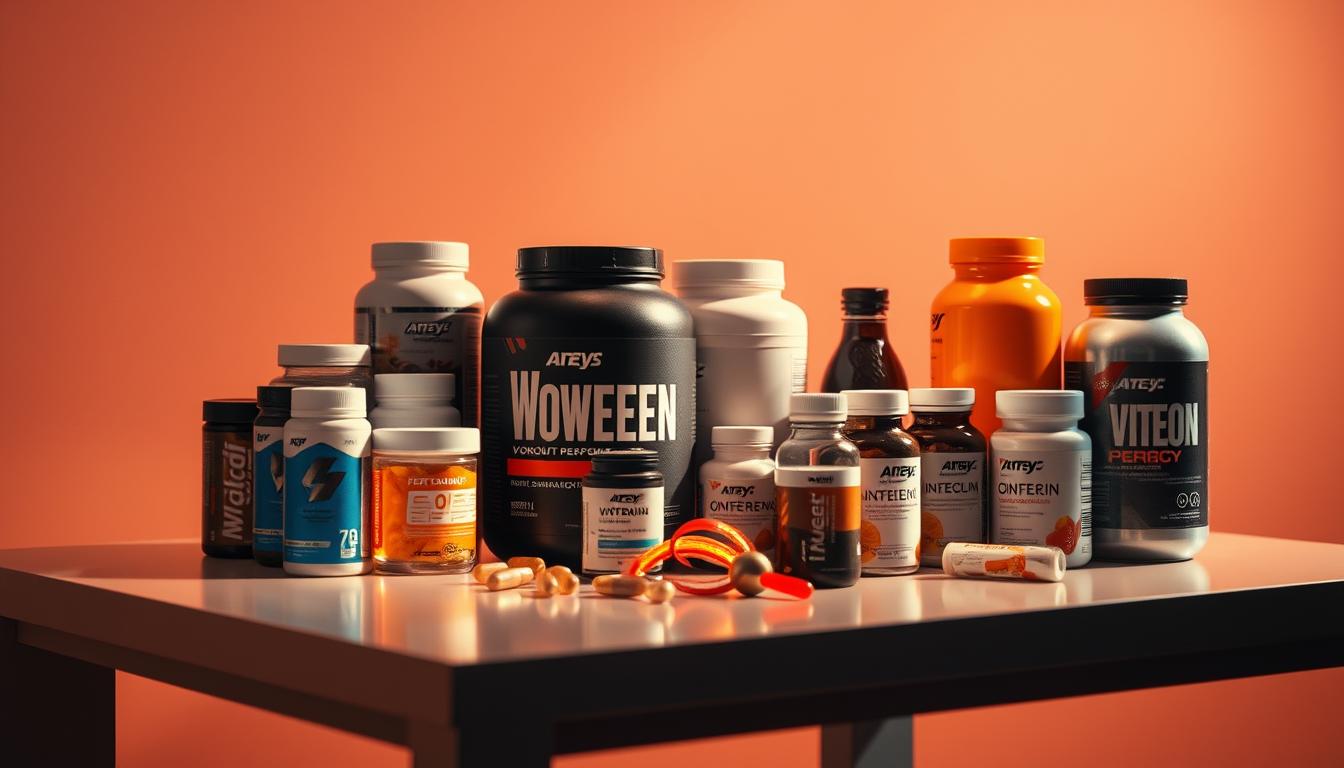

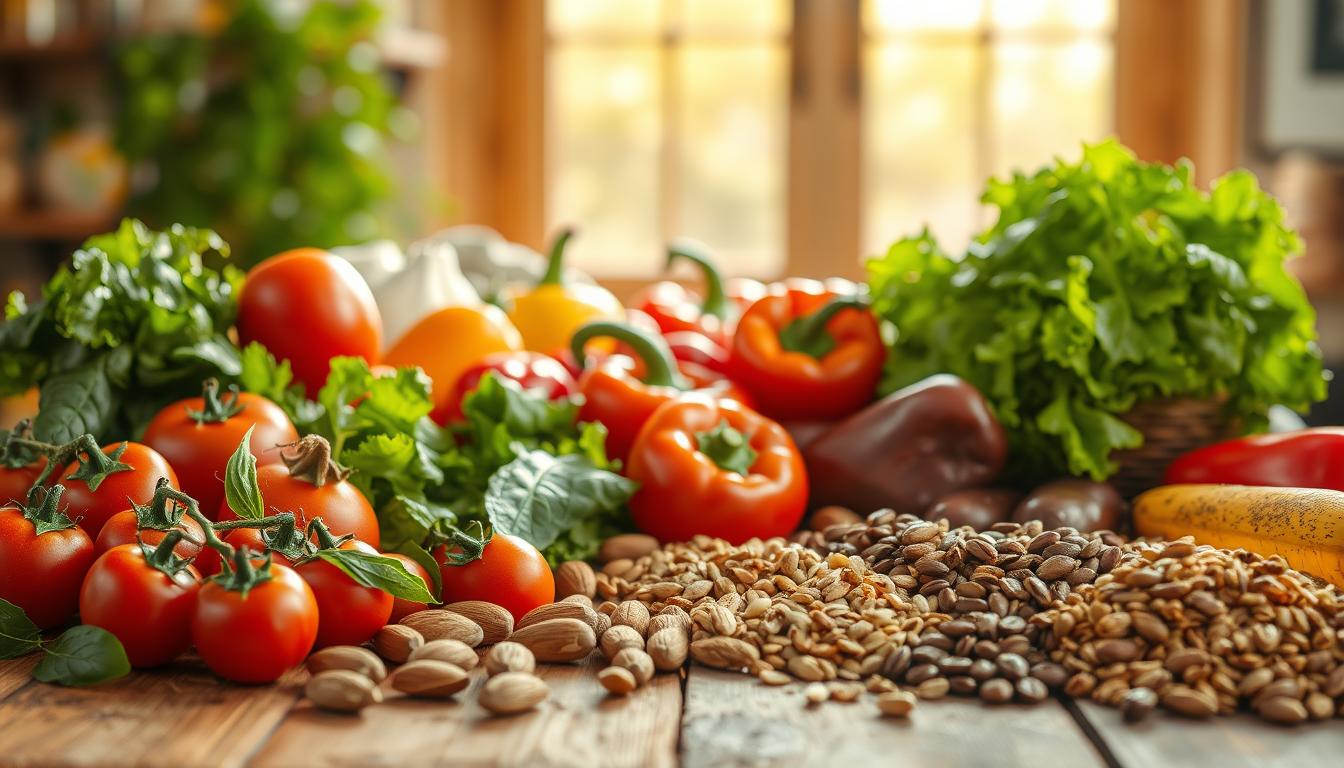

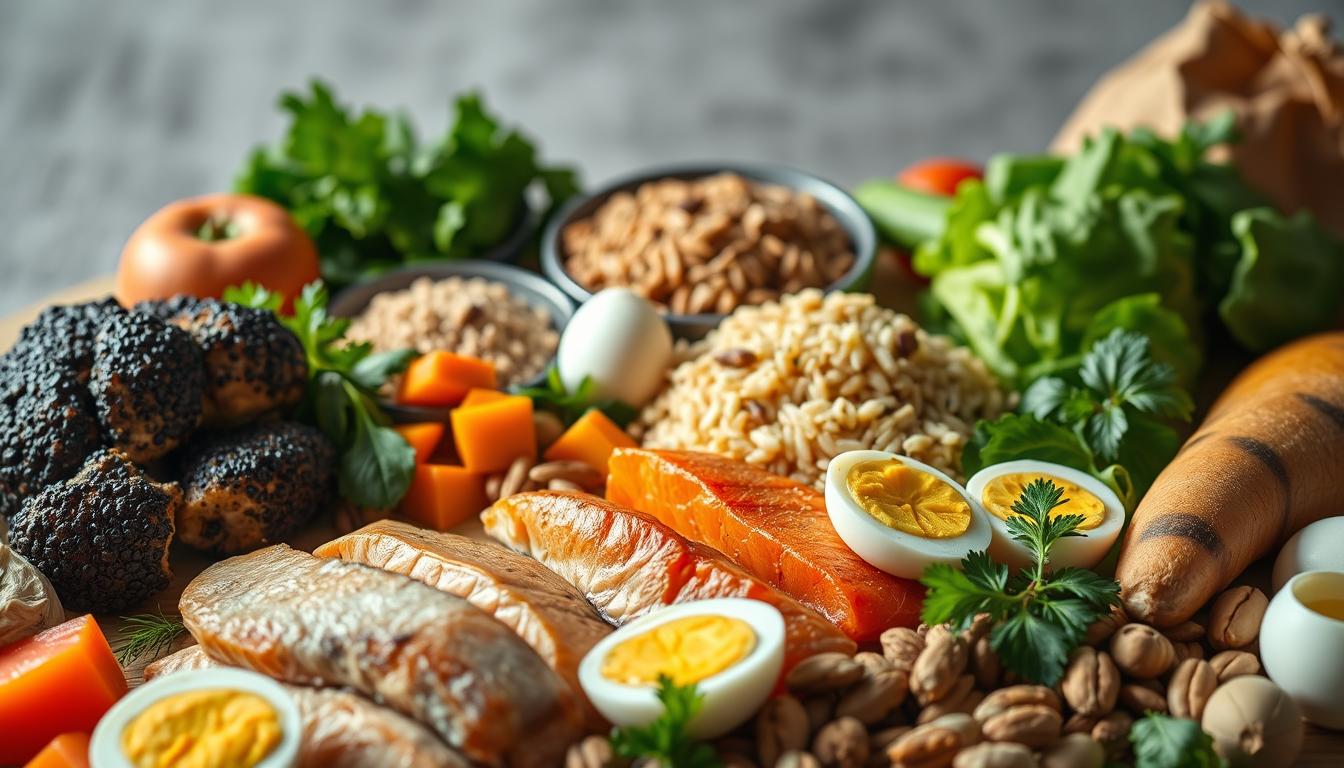
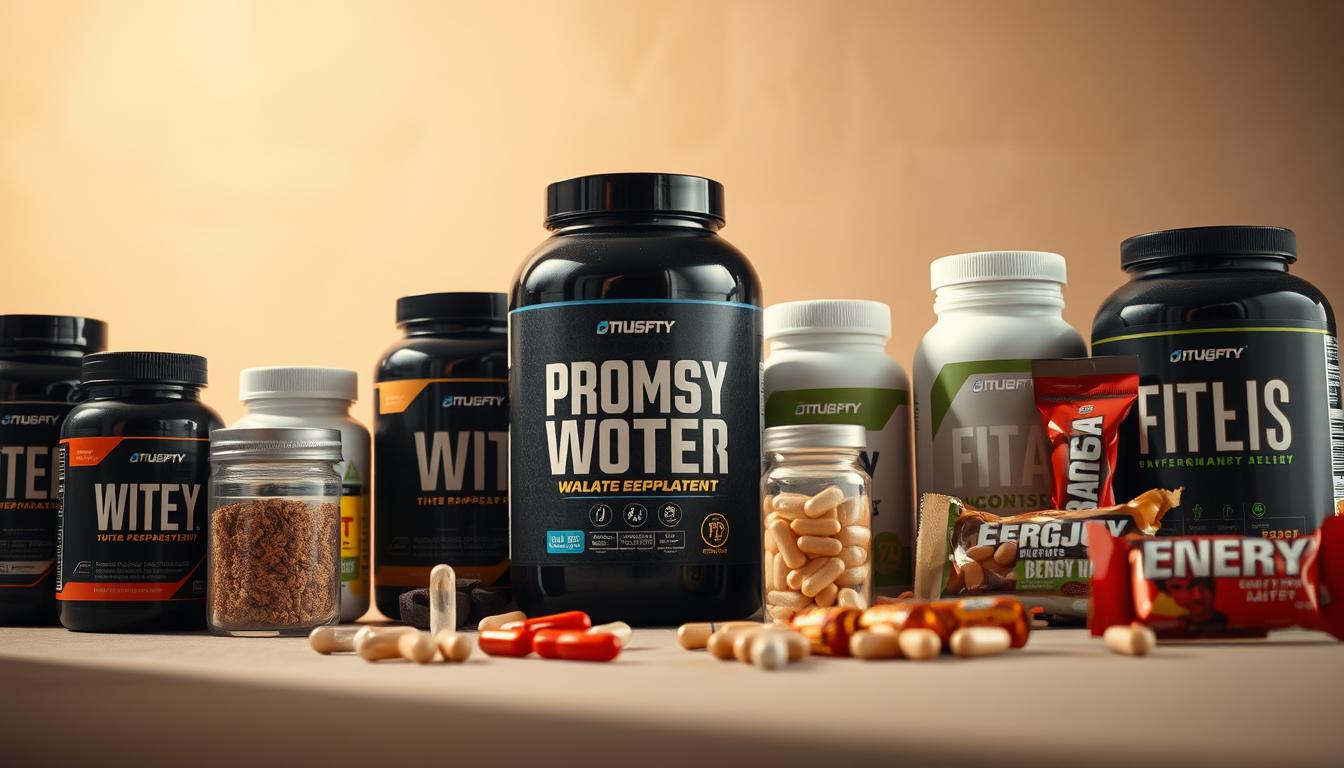
Comment on “Eating for a Healthy Mind: Must-Have Foods”